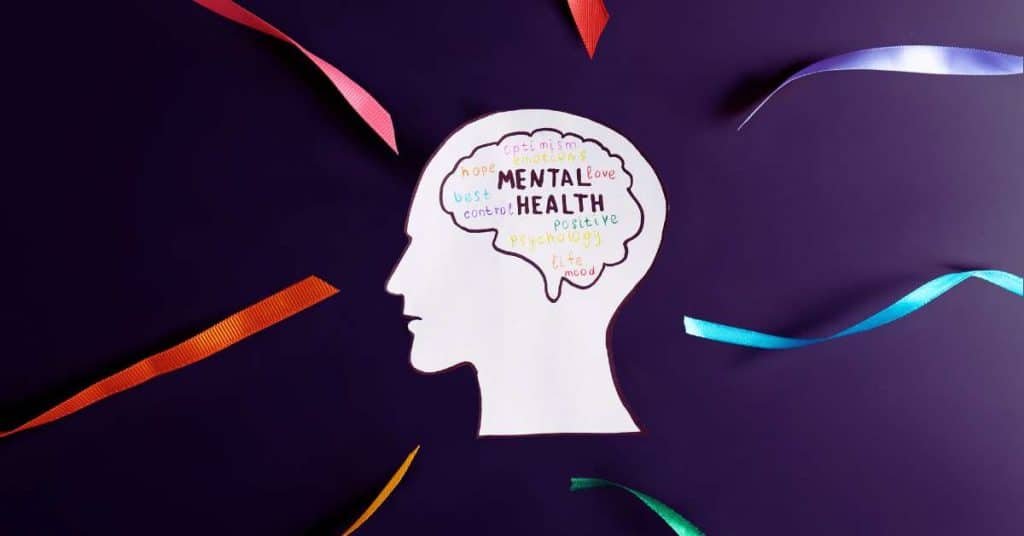Dubai is a city known for its world-class lifestyle, luxurious skyline, and buzzing multicultural energy. With over 200 nationalities calling it home, it stands as one of the most diverse places to live and work. But behind the glamour and ambition lies a quieter reality—many expats silently struggle with emotional stress, loneliness, and mental health challenges.
For many, moving to Dubai is a dream come true. High-paying jobs, tax-free salaries, and career growth often top the list of motivations. Yet the emotional cost of uprooting from home, adjusting to a new culture, and meeting the city’s fast-paced expectations often goes unnoticed. The result? An increasing number of expats quietly battling anxiety, burnout, and depression—often with very little support.
So what does mental health care look like for expats in Dubai? Is it accessible, affordable, and stigma-free? And most importantly, what steps can you take to protect your emotional wellbeing while living far from home?

The Silent Mental Health Struggles of Expats
Being an expat comes with a unique set of challenges. Many individuals leave behind their families, friends, and support systems to chase professional opportunities. While the financial benefits can be rewarding, the emotional price is often steep.
Expats frequently deal with loneliness, isolation, and homesickness. They may find it difficult to build deep connections, especially when most friendships here revolve around transient social circles. Add to that the pressure of job performance, unstable employment contracts, high living expenses, and visa dependency—and it becomes a perfect storm for emotional burnout.

Mental health often takes a back seat because the city rarely slows down. In Dubai’s high-achieving culture, people are expected to constantly “do more”—build a brand, invest in side hustles, and maintain a luxurious lifestyle. Many feel like they must hide their struggles to maintain a strong image. Talking about mental health? Still taboo for some communities.
What Makes Mental Health Even More Complex in Dubai?
One of the biggest challenges is the lack of extended family or close community support, which many expats are used to in their home countries. The support of parents, siblings, or childhood friends isn’t always available in a new country.
Another layer of complexity is visa dependency. If you lose your job in Dubai, you lose your visa. This creates a constant feeling of insecurity and fear, making it difficult for people to open up about stress or burnout at work. Many employees are afraid that admitting they’re struggling mentally could affect their professional reputation or even job security.
Cultural stigma also plays a huge role. In several expat communities, including South Asian, Arab, and African cultures, mental health is often misunderstood or minimized. The idea of seeing a therapist is still considered a sign of weakness rather than strength.

Are Mental Health Services Available in Dubai?
The good news is: yes. Dubai has made considerable progress in recent years in addressing mental health concerns, especially after the COVID-19 pandemic, which amplified feelings of isolation and stress.
The UAE government has been pushing to make mental health support more visible and accessible. In 2021, the Ministry of Health and Prevention launched a National Policy for Mental Health. There are now more clinics, hotlines, online platforms, and wellness centers than ever before.
Licensed therapists, psychiatrists, life coaches, and wellness practitioners are available across the city. There’s a growing ecosystem of expat-friendly mental health services that cater to different languages, cultures, and price ranges.
Still, cost remains a barrier for many. A single therapy session at a private clinic can range from AED 350 to AED 800. Insurance rarely covers mental health completely, unless you have a premium policy. But more affordable options are starting to emerge.
Affordable and Accessible Mental Health Resources in Dubai
If you’re looking for support, here are some trusted and well-reviewed options to explore.
1. Lighthouse Arabia
One of Dubai’s most respected mental health centers, Lighthouse Arabia offers therapy for individuals, couples, and children. They also host free grief support groups, parenting workshops, and wellness events. Their staff includes therapists from various cultural backgrounds, which makes them ideal for expats.
2. Thrive Wellbeing Centre
With a diverse team of psychologists and therapists, Thrive offers therapy in multiple languages including Arabic, English, French, Hindi, and Urdu. They also run corporate wellness programs and online sessions, making it easier for working professionals to access help.
3. Mindful ME
A well-known wellness hub offering psychotherapy, coaching, and mindfulness-based therapy. Their programs include stress management, anxiety recovery, and life coaching tailored for expat challenges.
4. Human Relations Institute & Clinics (HRIC)
HRIC focuses on culturally competent care and offers sliding scale therapy options, which means reduced rates based on your income or financial situation.
5. Nafs Platform
A bilingual (Arabic/English) online mental health platform offering virtual consultations, therapy matching, and wellness content. It’s perfect for people who want to begin therapy in a discreet and affordable way.
6. Dubai Community Helpline
A free, volunteer-based emotional support helpline available to residents. They offer a listening ear and immediate guidance on mental health resources.
7. Online Therapy Services (BetterHelp, TalkSpace)
Though international, platforms like BetterHelp now offer therapy tailored to expats. These are convenient, confidential, and can be accessed from home.

Building Emotional Resilience as an Expat
Apart from professional help, mental health is also about daily practices. Here are a few tips that can help expats build emotional resilience in Dubai’s fast-paced environment.
Create a support circle
Find people who you can be honest with. Join social or hobby-based communities that aren’t just about networking or showing off. Having at least one person to talk to without judgment can make a huge difference.
Set boundaries with social media
In Dubai, it’s easy to feel like everyone is doing better than you. If scrolling leaves you feeling empty or anxious, reduce your screen time or follow more grounded content creators who talk about real life, not just highlights.
Avoid toxic hustle culture
You don’t need to start a side hustle just because everyone else is. Rest is also productive. Learn to recognize burnout and take breaks before your mind and body crash.
Talk about what you’re feeling
Find safe spaces—whether it’s therapy, support groups, or even journaling—to express your emotions. Bottling it up never works.
Stay connected to your roots
Call your family regularly. Eat food that reminds you of home. Celebrate your culture. Staying connected to your identity provides emotional safety in unfamiliar environments.
Practice mindfulness or spirituality
Many expats find balance through yoga, meditation, or religious practices. Dubai offers access to mosques, temples, churches, yoga studios, and wellness retreats where you can reconnect with your inner self.
A New Shift: More People Are Opening Up
There’s a slow but visible change happening in Dubai. More people are talking about anxiety, depression, and emotional fatigue. Influencers are using their platforms to speak about therapy and emotional burnout. Companies are beginning to offer corporate wellness initiatives and mental health days. Schools are introducing emotional education programs.
This change is being driven by necessity. After all, the expat journey is not just about financial success. It’s about building a life—one where mental wellness matters just as much as material wins.
Final Thoughts: You Deserve Help, Not Just Hustle
Living in Dubai can be a remarkable experience. But it’s okay if it doesn’t always feel like that. Behind every glowing skyline photo is a story of effort, sacrifice, and emotional depth. If you’re struggling with your mental health, know that you’re not weak. You’re human.
The strongest thing you can do is ask for help. And in today’s Dubai, help is finally becoming more available, accessible, and accepted.
You are allowed to pause. You are allowed to feel. And most importantly, you are allowed to heal.
Follow us on instagram: UAE STORIES















